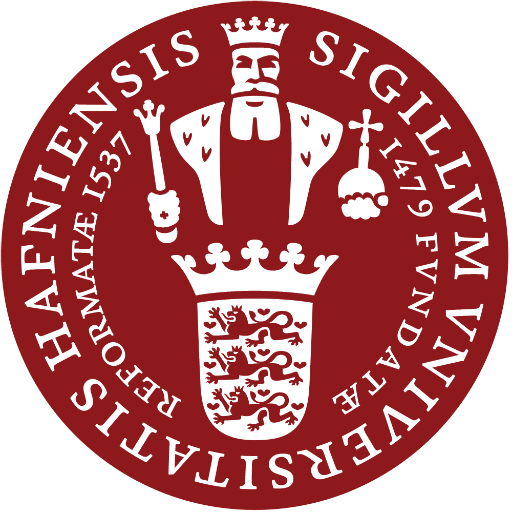PhD scholarships in Social Data Science at the Copenhagen Centre for Social Data Science
SODAS invites applications for 2-3 PhD scholarships in Social Data Science, starting from Sept 1, 2019 or as soon as possible thereafter.
The Copenhagen Centre for Social Data Science (SODAS) was established in 2016 as an interdisciplinary center at the Faculty of Social Sciences, University of Copenhagen, involving faculty and students from anthropology, economics, political science, psychology and sociology, as well as from network and data scientists from the Danish Technical University. At the heart of the Faculty’s Social Big Data Initiative, SODAS’ vision is to create a social data science community focused on (i) leveraging advances in data science and in the collection of digital and/or big data and new data forms for the benefit of social scientists; (ii) enriching and combining qualitative and quantitative methods; and, (iii) at the same time, to study how such data, and not least their ethical and privacy-related challenges, transform the ways of doing social science.
A key part of SODAS’ mission is to facilitate and encourage primary data collection, data visualization and data analysis based on novel data forms – such as data from dedicated and non-dedicated digital data collectors, social media, web scraping etc. – to answer core social science questions, old and new. Therefore, applicants should have a positive attitude towards taking an active part both in the Center’s role as a knowledge hub research infrastructure and in developing undergraduate, Master’s and PhD courses across the Faculty.
Ongoing work in SODAS draws on all the social sciences and includes high frequency data on social interactions, the mathematical structure of networks, using smart phones as sociometers, privacy and ethics, triangulations of qualitative and quantitative observations, social media in foreign policy, peer effects measurements from high frequency data, political language and mass political discourse, combining social, historical and register data, machine learning in the social sciences, data visualization, mobility data, etc.
Applicants can have a background across the social and technical sciences with stated and/or demonstrated interests in combining them. The PhD proposal should contain 3-4 pages containing (1) a description of proposed research projects, including their interdisciplinary nature; (2) experiences with data science methods and interdisciplinary study and research; (3) time schedule (4) the applicant’s thoughts on how to contribute to making SODAS a successful research infrastructure.
SODAS was established in 2016 and is based at the Faculty of Social Sciences, University of Copenhagen. We aim at becoming a premier center for data science with a social science twist – social data science – both nationally and internationally. SODAS and the Faculty of Social Science is launching a new Master’s program in Social Data Science, to commence in 2020.
Job description
The positions are available for a 3-year period (for applicants holding a master degree) or a 4-year period (under the so-called 4+4 model for applicants having 4 years of course work at the time starting the PhD studies). The tasks of PhD students are to
- participate in smaller research groups working on research projects at SODAS
- write scientific articles that are included in the PhD thesis of the applicant
- attend PhD courses
- participate in congresses/workshops/seminars
- teach and disseminate research
- visit another international research institution for at least a few months
- work for SODAS
Qualifications
We seek candidates with a strong academic background in the social and/or technical sciences, qualifying for enrolment in the 5+3 programme (3 year PhD programme) or 4+4 programme (4 year PhD programme) in Social Science. In the assessment of the candidate’s qualifications, emphasis will be on academic results, interdisciplinary experience, the project proposal and other potential relevant professional experiences or publications. Good English language skills are required.
In order to be eligible for a scholarship in the 5+3 PhD study programme the applicant must have completed a two-year MSc degree programme, or have earned 120 ECTS credits at an equivalent academic level before starting employment. Applicants should check the study programmes for more detailed descriptions of the entry requirements. PhD students are paid a salary in accordance with the agreement between the Ministry of Finance and the Danish Confederation of Professional Associations (AC). The PhD student has a work obligation of up to 840 hours over the three-year period of time without additional pay. The work obligation can, for instance, include teaching.
Students who have completed a BSc plus 60 ECTS of an MSc degree programme would enrol as PhD students simultaneously with their enrolment in a relevant MSc degree programme. Applicants should check the study programmes for more detailed descriptions of the entry requirements. Until an MSc degree is obtained, the grant is paid partly in the form of up to 48 state education grant portions (in Danish: SU-klip). More specifically the PhD student will be paid two grant portions per month plus salary for work (teaching, presentations etc.) which totals a workload of at least 280 hours. Payment and conditions of employment are carried out in accordance with the agreement between the Ministry of Finance and the Danish Confederation of Professional Associations (AC). Upon completion of the MSc degree the student is transferred to the salary-earning part of the PhD studies.
For more information click "LINK TO ORIGINAL" below.
This opportunity has expired. It was originally published here:
https://employment.ku.dk/phd/?show=149324
